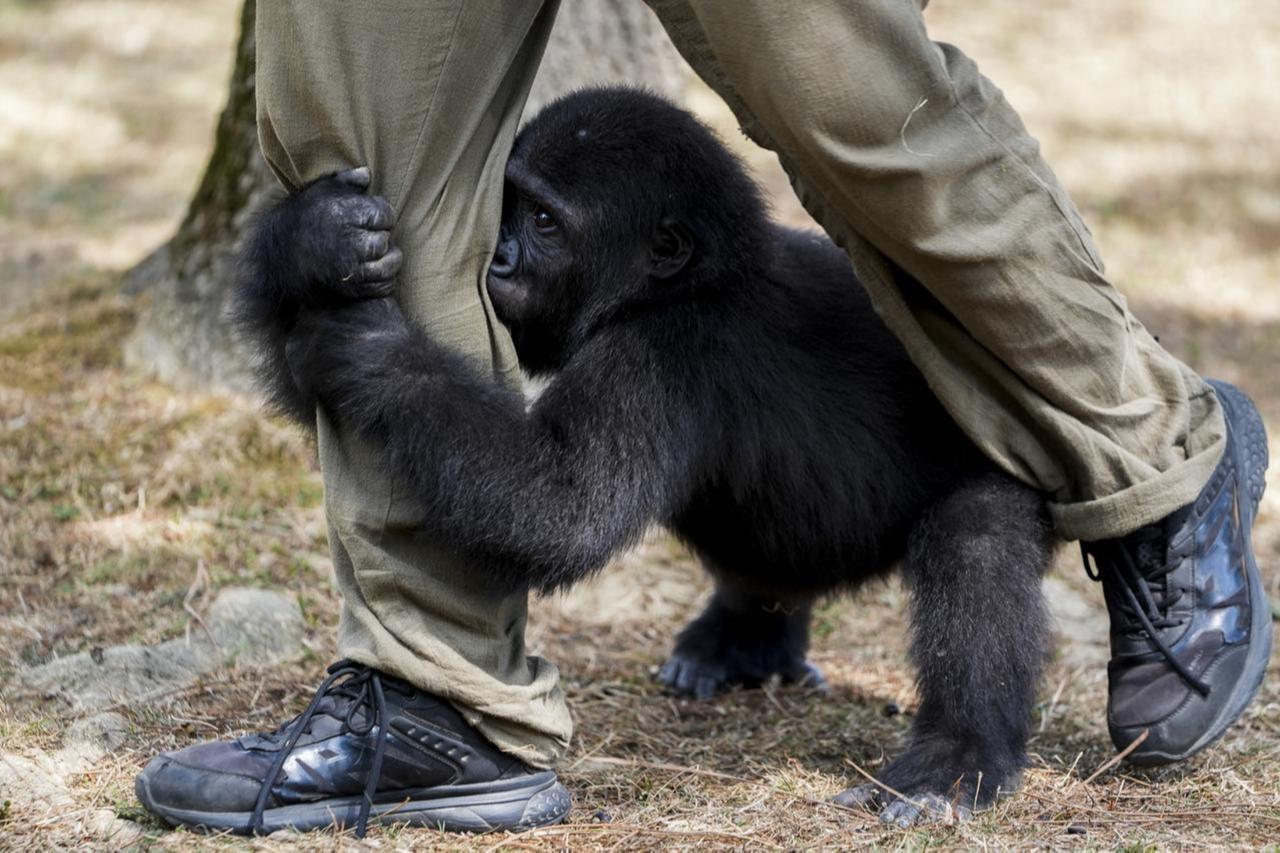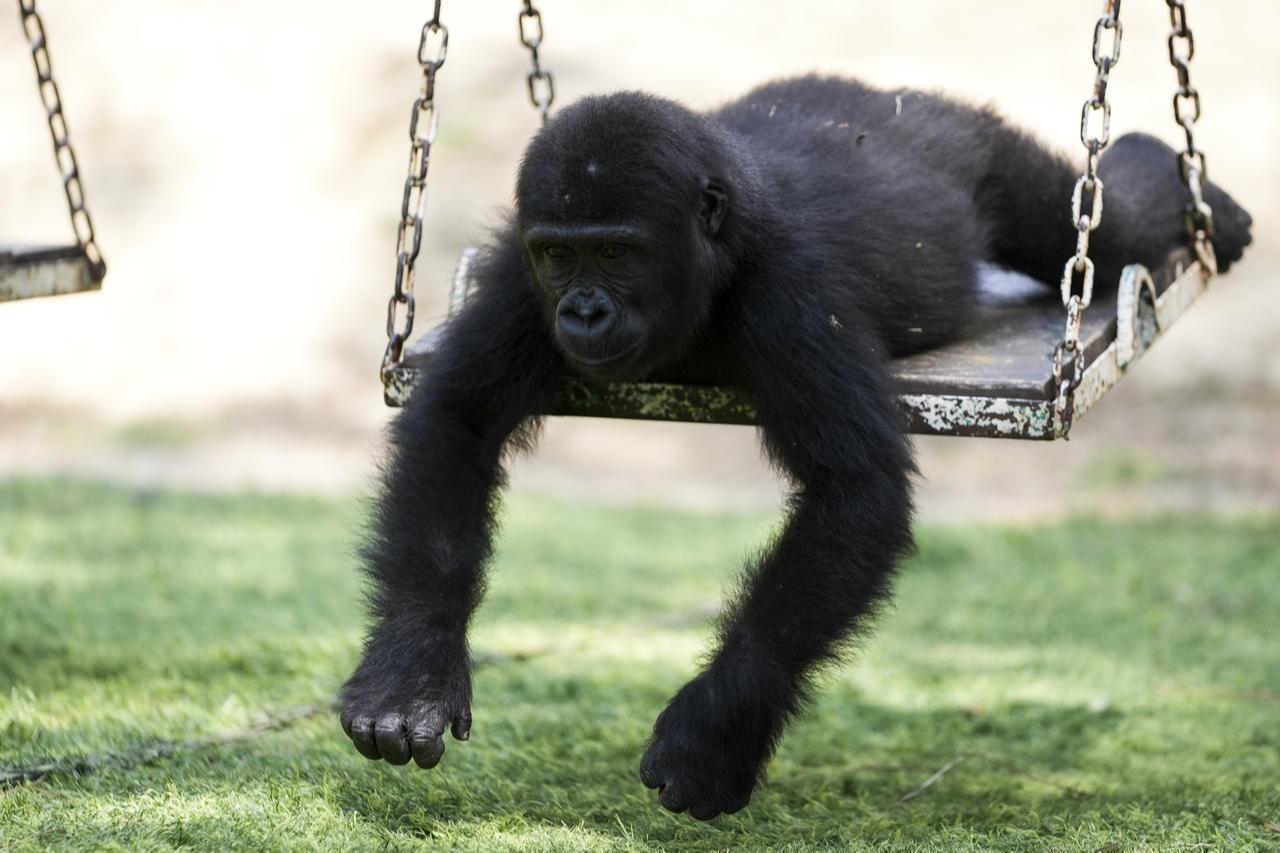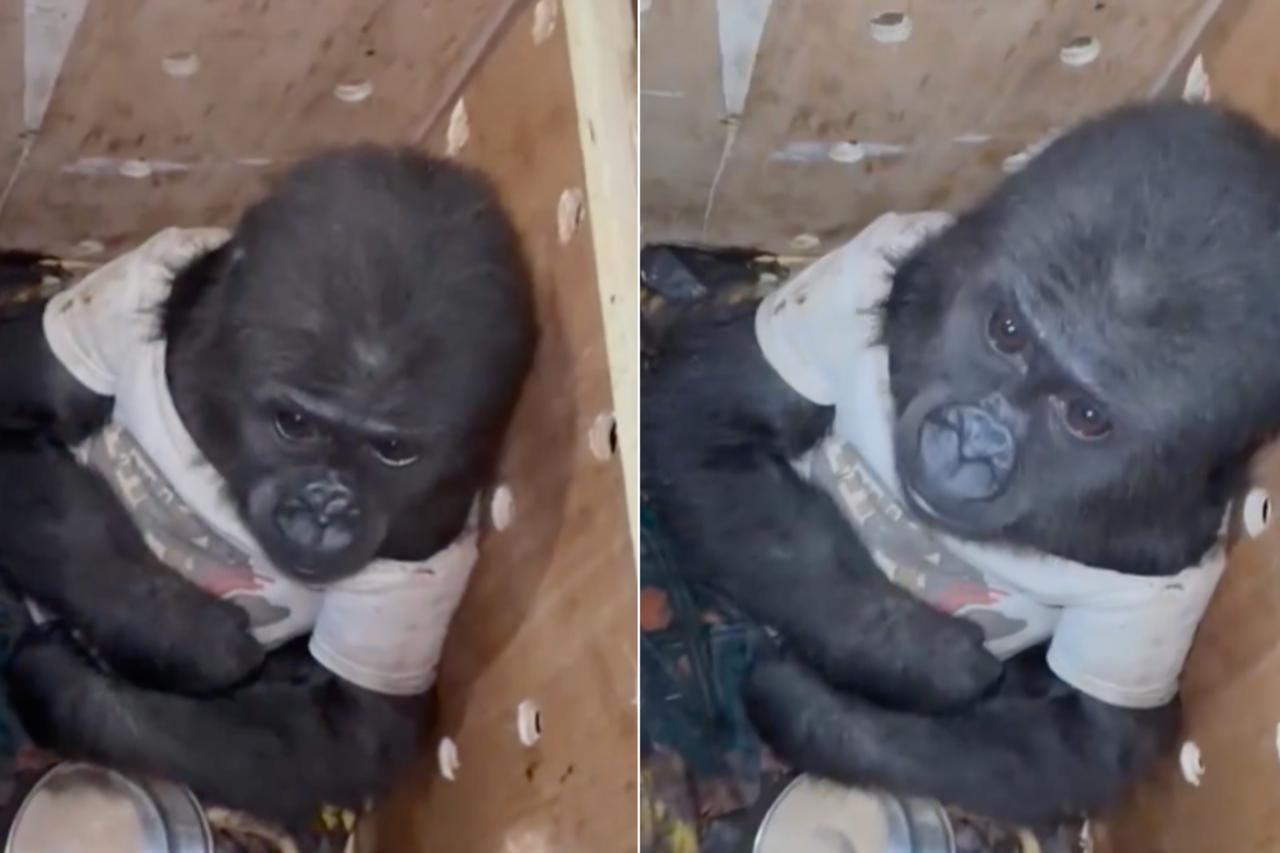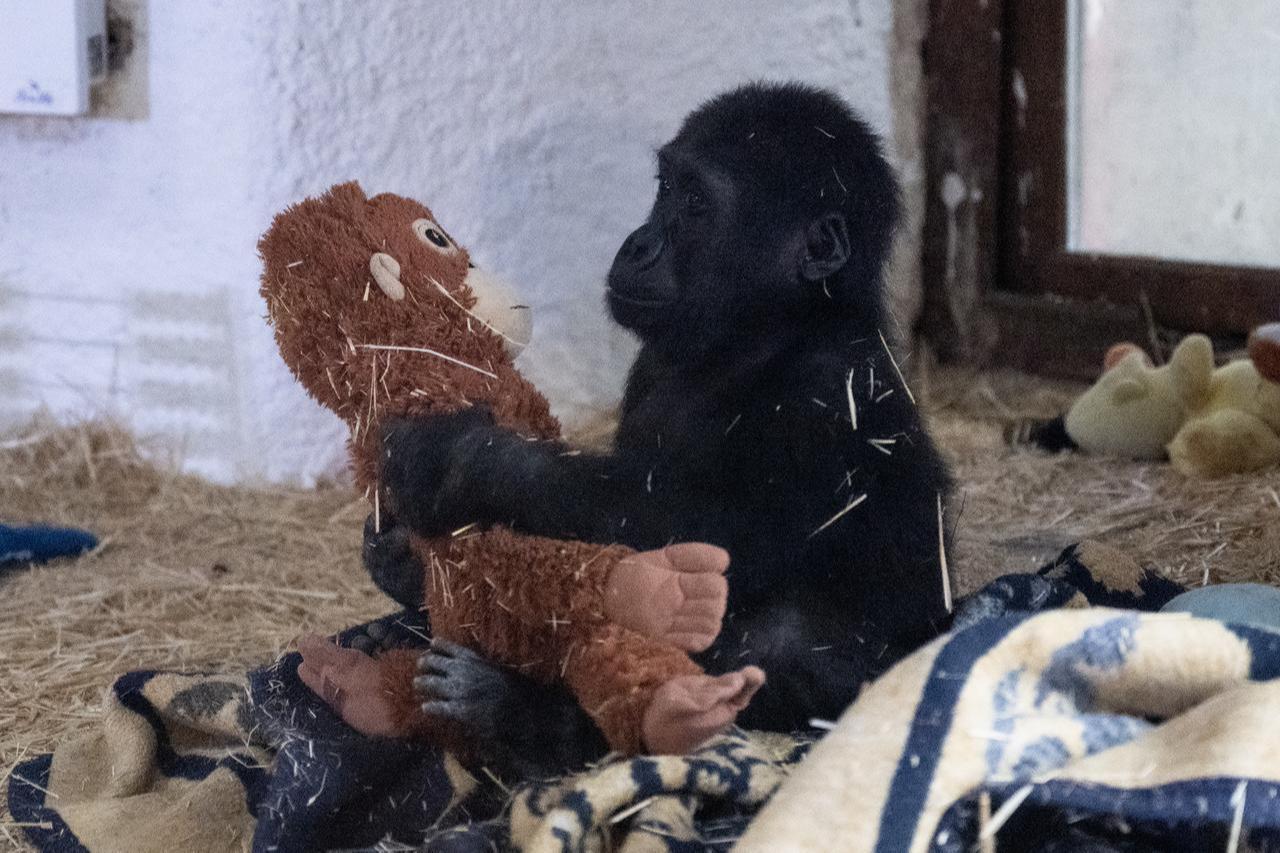
Türkiye’s General Directorate of Nature Conservation and National Parks (DKMP) announced that baby gorilla Zeytin, rescued from wildlife smugglers at Istanbul Airport in December 2024, will remain in Türkiye after a new DNA test showed she is not of Nigerian origin.
Officials said the decision follows a detailed genomic analysis confirming that Zeytin is a Western lowland gorilla, a species not native to Nigeria, and therefore cannot be repatriated under international wildlife trade rules.

According to Turkish authorities, the gorilla has been under constant veterinary supervision since her rescue and continues to live safely at a licensed zoo in Istanbul.
“Zeytin will remain in safe hands and receive lifelong care under humane conditions,” the statement said.
The agency emphasized that animal welfare and international regulations were at the center of the decision, adding that Türkiye will “continue working with great dedication to protect biodiversity and transfer wildlife heritage to future generations.”
The announcement came nearly a year after the animal was discovered during customs inspections, marking a major turn in a case that drew public attention across Türkiye and raised broader awareness about illegal wildlife trafficking.

Zeytin was found on December 21, 2024, during an inspection by customs enforcement teams at Istanbul Airport.
The cargo, listed as a shipment from Nigeria to Thailand, contained a small cage with a live baby gorilla but lacked the required CITES (Convention on International Trade in Endangered Species of Wild Fauna and Flora) documentation. Classified as critically endangered, gorillas cannot be traded internationally except under strict scientific or conservation conditions.
Following the seizure, the Ministry of Agriculture and Forestry’s DKMP transferred the gorilla to a licensed zoo in Istanbul’s Polonezkoy district. Weighing only nine kilograms at the time, she was weak and frightened after days in transit.
Under veterinary supervision, Zeytin gradually recovered and began to show normal behavior such as eating regularly, playing, and responding to caretakers. By mid-2025, she had gained seven kilograms and adapted well to her new environment.
Her rescue and recovery quickly captured national attention. The ministry organized a public poll to name her, and the winning choice was “Zeytin” (Olive).

After the rescue, Nigerian authorities invoked CITES provisions allowing the country of export to reclaim confiscated animals and formally requested Zeytin’s return.
Preparations began for her transfer to Drill Ranch, a sanctuary in Nigeria accredited by the Pan African Sanctuary Alliance (PASA).
Experts, including primatologists from the Jane Goodall Institute, initially supported the move, noting that gorillas are social animals that develop best when surrounded by their own species.
However, Türkiye’s environment ministry sought further scientific verification before finalizing the repatriation. Under the coordination of Ankara University’s Evolutionary Genetics Laboratory, a full DNA sequencing was performed to determine the gorilla’s exact origin.
The results confirmed that Zeytin is a Western lowland gorilla, native to Central African countries such as Cameroon and Gabon, and not to Nigeria.
With these findings, Türkiye suspended the repatriation process. Under CITES COP-19 resolutions, seized animals must be placed in facilities that can ensure their welfare for life, and since Nigeria was no longer the country of origin, returning her there would have violated those terms. The DKMP therefore decided that Zeytin would remain permanently in Türkiye.

Officials emphasized that Zeytin’s case reflects both Türkiye’s legal obligations and its growing role in global biodiversity protection.
The ministry noted that all measures were taken to minimize the stress the animal experienced during rescue and rehabilitation, while ensuring her long-term safety. Authorities also confirmed that the zoo caring for her meets the humane conditions required under CITES guidelines.
The decision marked a rare instance where a confiscated endangered animal will remain in the country where it was rescued rather than being returned to its alleged source nation.
Environmental experts see it as an example of how DNA testing and international cooperation can correct errors in wildlife trade documentation and prevent further exploitation.